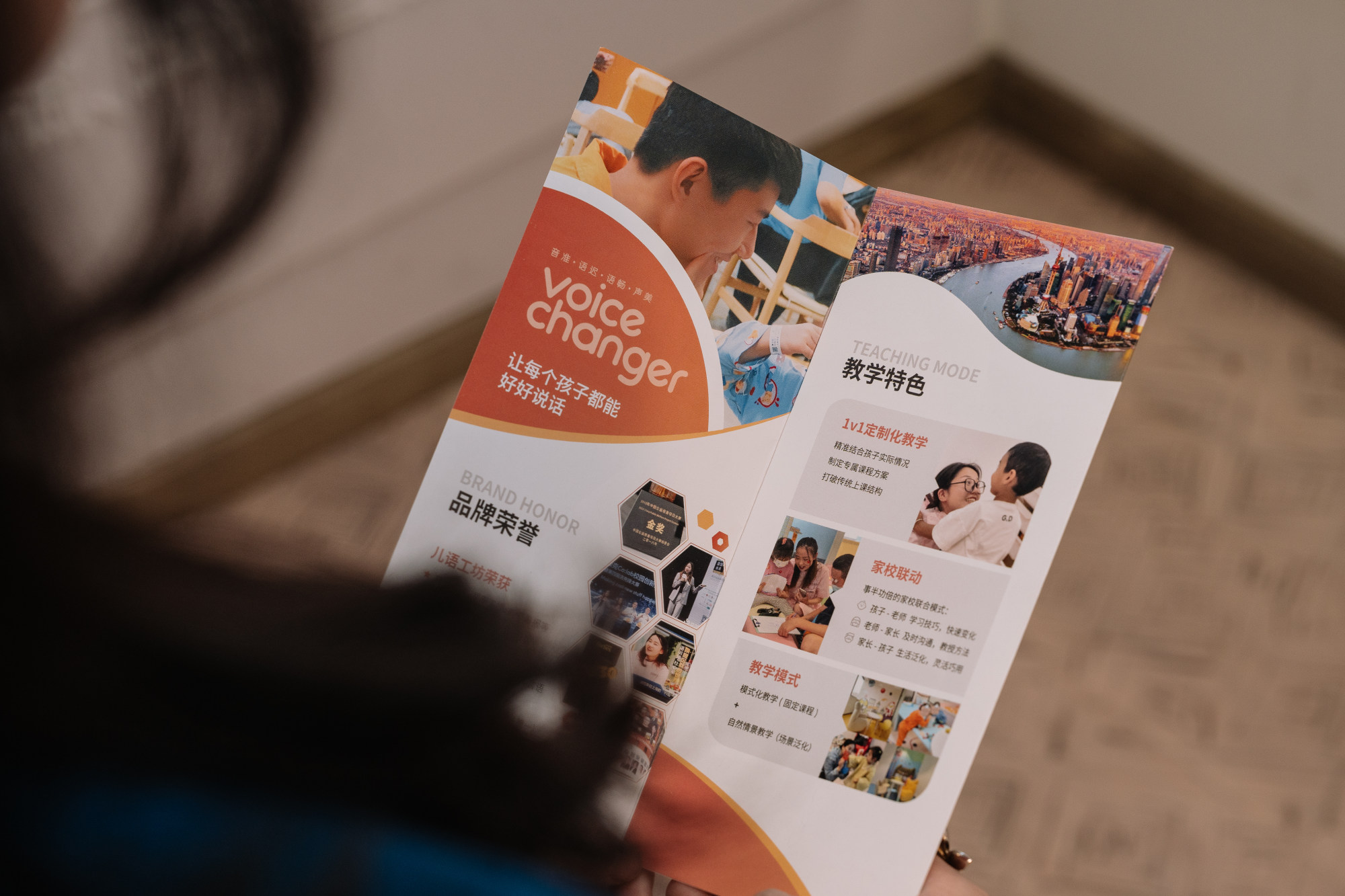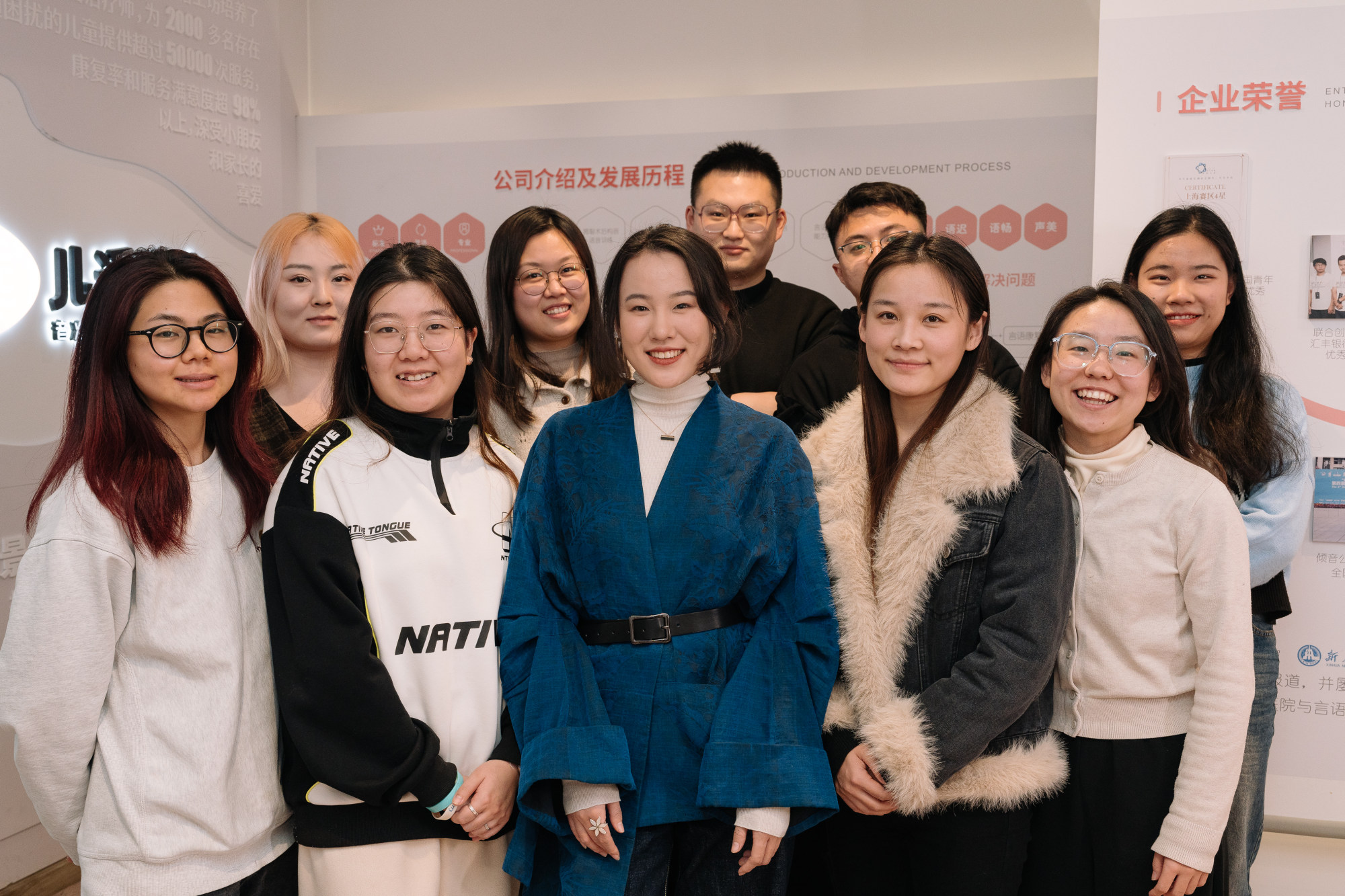
Speech-impaired children find their voice with VoiceChanger. It began with one little girl
- Du Xintong developed VoiceChanger, a low-cost way to help those with speech problems – and has won a Cartier Women’s Initiative award for it
In 2016, Du Xintong was a broadcasting major at Shaanxi University of Science and Technology when she met a girl who was recovering from cleft lip and palate surgery at a children’s hospital in Xian, northwest China.
The young girl was quiet and unwilling to talk because she was unable to speak clearly. To communicate with her, Du wrote questions instead, and the pair conversed about the girl’s name, age and favourite things.
When the time came for Du to leave, the little girl tentatively used her voice. “Will you come tomorrow, sister?” she asked.
“This voice touched me. This was the first time I heard the voice [of a child] with speech impairment,” Du says.

Du has since expanded her project; as the co-founder and chief executive officer of VoiceChanger, she has opened 20 in-person centres in mainland China and developed an online training programme, all to provide high-quality therapeutic and rehabilitative services for young people with speech impairments.
This year, she has been named a Cartier Women’s Initiative fellow, winning third place in the East Asia category for VoiceChanger. The programme, founded in 2006 by luxury conglomerate Cartier, awards women entrepreneurs building social impact businesses across 11 categories – nine regional, one focused on diversity, equity and inclusion, and one on science and technology.

The journey to this point in her social impact journey has been filled with ups and downs.
In the beginning, she says, all of VoiceChanger’s services were free and mostly catered to those with cleft palates.
Du received a number of grants and honours and by 2019 – her first year out of university – she had her first investment of 2 million yuan (US$276,000).

“All the difficulties brought on by Covid-19 broke me. It shattered everything that I knew about myself. I had to start over and think about how I should run a company, how to find customers and how to provide a better education for the children.
“The fact that I encountered difficulties at such an early stage, I actually think it’s a blessing. To become a true entrepreneur, you have to go through these types of situations,” she says.
She managed to open a second location after a year despite the pandemic and, in 2021, she got a second investment of 3 million yuan – which she used to open four additional centres. Shortly after she opened these new centres, Shanghai was locked down under stringent Covid-19 restrictions, but she felt better able to deal with it.
“I realised I wasn’t scared of difficulty any more,” Du says.

Beyond VoiceChanger’s 20 in-person centres, the company also caters to the Chinese diaspora. In total, it serves more than 250 cities.
The success of her business lies in its robust system, she says.
“In the past, in Shanghai, a lot of organisations might need 60 to 100 classes to help those who don’t have clear pronunciation overcome their problem. But we might only need a set of 12 classes. So, we’ll use a shorter amount of time and the quickest speed to help children overcome an issue.”

